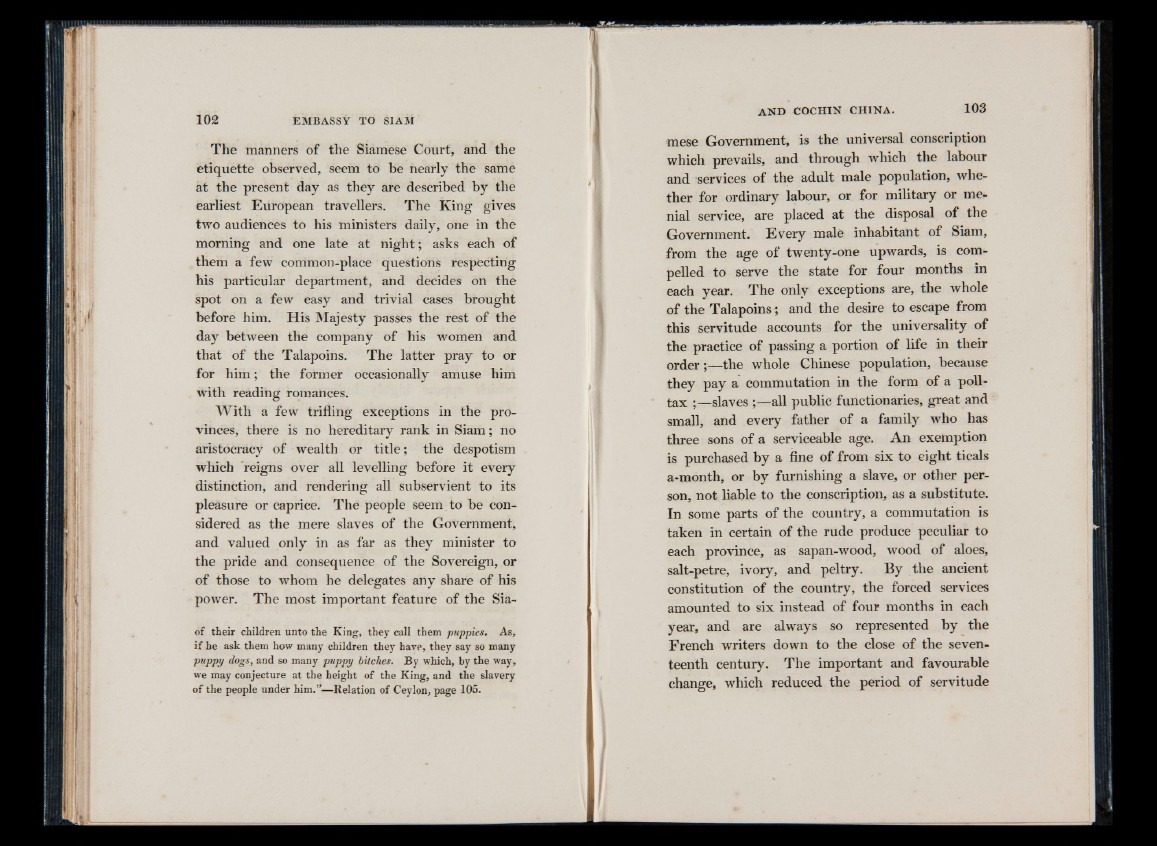
The manners of the Siamese Court, and the
etiquette observed, seem to be nearly the same
at the present day as they are described by the
earliest European travellers. The King gives
two audiences to his ministers daily, one in the
morning and one late at night; asks each of
them a few common-place questions respecting
his particular department, and decides on the
spot on a few easy and trivial cases brought
before him. His Majesty passes the rest of the
day between the company of his women and
that of the Talapoins. The latter pray to or
for h im ; the former occasionally amuse him
with reading romances.
With a few trifling exceptions in the provinces,
there is no hereditary rank in Siam; no
aristocracy of wealth or title ; the despotism
which reigns over all levelling before it every
distinction, and rendering all subservient to its
pleasure or caprice. The people seem to be considered
as the mere slaves of the Government,
and valued only in as far as they minister to
the pride and consequence of the Sovereign, or
of those to whom he delegates any share of his
power. The most important feature of the Siaof
their children unto the King, they call them puppies. As,
if he ask them how many children they have, they say so many
puppy dogs, and so many puppy bitches. By which, by the way,
we may conjecture at the height of the King, and the slavery
of the people under him.”—Relation of Ceylon, page 105.
mese Government, is the universal conscription
which prevails, and through which the labour
and services of the adult male population, whether
for ordinary labour, or for military or menial
service, are placed at the disposal of the
Government. Every male inhabitant of Siam,
from the age of twenty-one upwards, is compelled
to serve the state for four months in
each year. The only exceptions are, the whole
of the Talapoins; and the desire to escape from
this servitude accounts for the universality of
the practice of passing a portion of life in their
order;—the whole Chinese population, because
they pay a commutation in the form of a poll*
tax ;—slaves ;—all public functionaries, great and
small, and every father of a family who has
three sons of a serviceable age. An exemption
is purchased by a fine of from six to eight ticals
a-month, or by furnishing a slave, or other person,
not liable to the conscription, as a substitute.
In some parts of the country, a commutation is
taken in certain of the rude produce peculiar to
each province, as sapan-wood, wood of aloes,
salt-petre, ivory, and peltry. By the ancient
constitution of the country, the forced services
amounted to six instead of four months in each
year, and are always so represented by the
French writers down to the close of the seventeenth
century. The important and favourable
change, which reduced the period of servitude